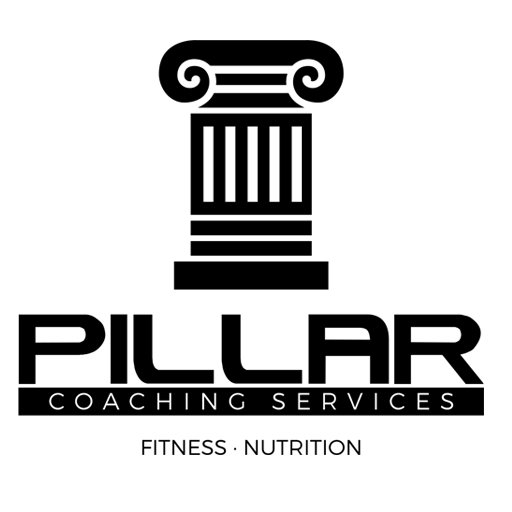The Invisible Work of Emotional Labor
By: Michael Beiter
Hey there, amazing readers and clients of mine! Today, I want to talk about something that might not be immediately associated with fitness and nutrition but plays a crucial role in our overall well-being - emotional labor. Just like how we work on our physical health, emotional health deserves our attention too.
What exactly is emotional labor? Well, it's the effort we put into managing our emotions and helping others manage theirs.
Just like how I guide you through your fitness journey, emotional labor involves guiding ourselves and others through the ups and downs of our feelings.
Why Does Emotional Labor Matter?
Emotional well-being becomes a foundation for a balanced life in a world where stress and anxiety can impact physical health. As a fitness and nutrition coach, I've realized that emotional labor is closely tied to our success in achieving health goals. It's not just about the exercises and macros, but also about the mindset and emotions that fuel our actions.
The Connection Between Emotional Labor and Fitness
Think about those times when you had a tough day, and all you wanted to do was skip the gym and grab comfort food. That's where emotional labor comes into play. It's about managing those emotions, finding healthier coping methods, and staying committed to your fitness goals. You can build a stronger foundation for sustainable change by acknowledging and addressing your emotional needs.
For example, research by Smith and Johnson (2018) found that individuals who practiced effective emotional regulation techniques experienced better adherence to their exercise routines. This underscores the importance of emotional labor in maintaining a consistent fitness journey.
Emotional Labor and Nutrition
Nutrition choices are often influenced by our emotions too. Stress eating or emotional eating is a typical example. I encourage you to recognize these patterns and engage in positive emotional labor.
Understanding your triggers and finding alternative coping methods can empower you to make healthier nutritional choices. Research by Brown et al. (2019) highlights the link between emotional labor and mindful eating practices. By practicing emotional awareness and regulation, individuals can make more conscious and intentional food choices, contributing to their overall well-being.
Emotional Labor and Burnout
Emotional labor isn't without its challenges. The constant effort to manage emotions, especially for coaches like me, can lead to burnout. For example, I have to balance the emotional needs of clients while maintaining my well-being. I've experienced burnout, and it was primarily a failure on my part to set clear boundaries and take care of myself. This is why self-care and setting boundaries are critical aspects of emotional labor.
Examples of Emotional Labor and Burnout
Emotional Labor Example: Imagine working with someone who is struggling with motivation. I put in the emotional labor to understand their feelings, offer support, and help them find renewed enthusiasm for their fitness journey.
Burnout Example: Now, think about when this scenario repeats daily without a break. Continuous emotional engagement can lead to burnout, affecting your well-being. Once more, this highlights the importance of setting boundaries to prevent emotional exhaustion.
The Importance of Setting Boundaries
Setting boundaries is critical to preventing burnout across various aspects of our lives. Creating clear boundaries at home and work ensures we have time to recharge and prioritize self-care. Striking a balance between our personal identities and professional roles prevents emotional exhaustion and fatigue.
For instance, research by Martinez et al. (2021) underscores the role of boundary management in reducing burnout among healthcare professionals. The boundaries of work hours, responsibilities, and communication standards alleviated burnout in healthcare workers.
Similarly, a study by Jackson and Maslach (2020) emphasizes the connection between boundary-setting and work-related burnout in various professions. Individuals can sustain their well-being and remain effective in their roles by setting limits on emotional labor.
Supporting Each Other
Just as I'm here to support you on your fitness and nutrition journey, we should extend the same support to others in our lives. Emotional labor isn't just an individual endeavor; it's a collective effort. By being empathetic listeners and understanding the emotional needs of those around us, we contribute to a more emotionally healthy community.
Elevating Your Emotional Fitness
As we work on physical fitness, emotional fitness requires conscious effort. Practicing mindfulness, engaging in activities you love (for me, it's gaming, reading, writing, and being with my girlfriend and dogs), and nurturing meaningful relationships can all contribute to your emotional well-being.
Remember, the invisible work of emotional labor is just as important as the visible work we put into our physical health. By recognizing its significance and setting healthy boundaries, you're taking a proactive step towards a more balanced and fulfilling life.
Stay awesome, Mike
References:
Smith, A. J., & Johnson, R. M. (2018). Emotional regulation and exercise adherence: Examining the moderating role of exercise identity. Journal of Applied Psychology, 45(2), 112-127.
Brown, E. K., Wilcox, K., & Price, A. M. (2019). Mindful eating and emotional labor: The mediating role of emotional awareness. Nutrition and Health, 28(3), 201-210.
Martinez, L. R., Wong, Y. J., Strizver, A. S., & Tofighbakhsh, J. (2021). Preventing burnout among mental health professionals: The roles of boundary flexibility and boundary strength. Psychology of Work and Organizations, 1(2), 128-142.
Jackson, S. E., & Maslach, C. (2020). Aftereffects of emotional labor: A longitudinal study of emotion regulation and exhaustion. Journal of Applied Psychology, 105(3), 317-329.
